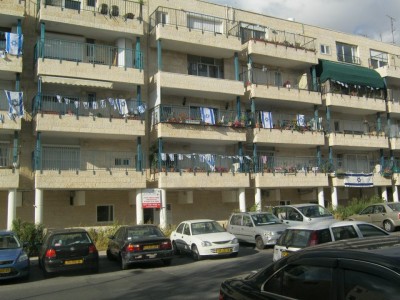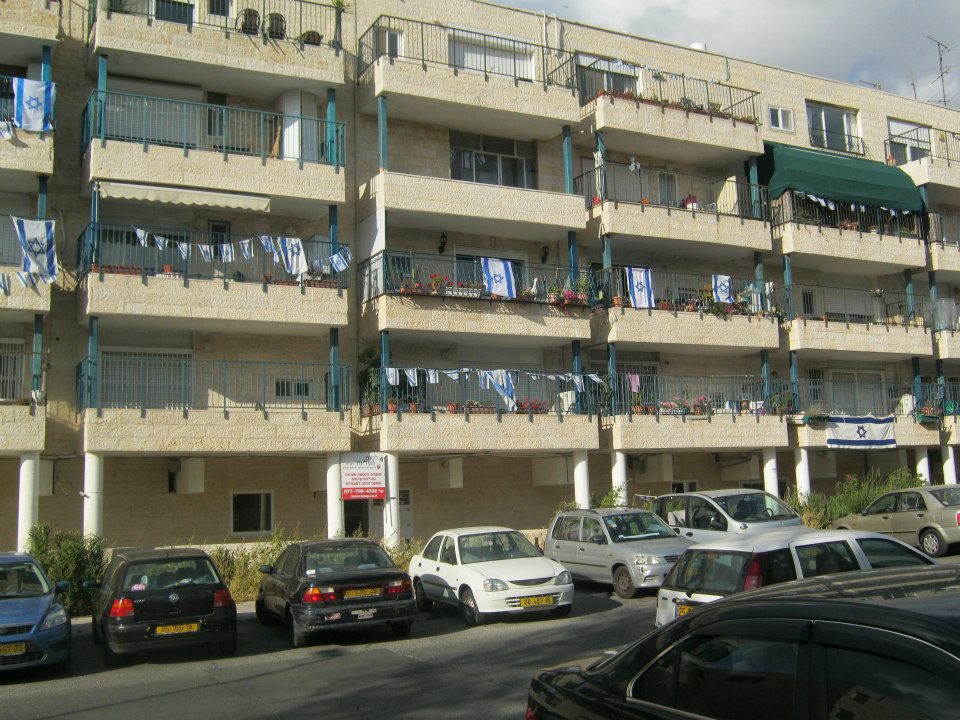
We’re usually pretty hard on Israel here at New Voices, and though more forgiving than some, I’m no exception. Yet, I find that in the midst of all my anxiety over the results of the last election or railing against the settlements, Yom HaAtzmaut provides the ideal opportunity to step back and remember why I care so much to begin with. Yom HaAtzmaut reminds me that I care so much because I’m totally in love with Israel.
In its worst moments, this love can feel like an abusive relationship; I love Israel just enough to constantly remind it of how big of a disappointment it is. But this is exactly why I, and I think other progressive Zionists, need Yom HaAtzmaut. This is the day when Israel and I take a night out to fall in love all over again.
Today, I unapologetically don my blue and white, wave the flag, and feel blessed beyond belief to live in a world where a Jewish state in the Levant is a reality. When the sun sets, I will go back to wringing my hands, rolling my eyes, and tearing my hair out at that state with renewed passion.
What do I love so damn much about Israel to make this masochistic relationship worthwhile? Well, love, like anything irrational, is kind of hard to put into words. But I can tell you at least that my love is both intellectual and experiential.
Intellectually, I am proud of so much of what my people have managed to accomplish over their first 67 years of renewed sovereignty. Today I join with other Jews to celebrate our state that has universal health-care, a diverse society and economy, and a robust democracy (for now, anyway). One that gave the world drip irrigation, the microchips that make quickly organizing anti-Israel protests possible, cherry tomatoes, Bamba, and the world’s best chocolate milk. Today I also pause to consider how wonderful it is that there is a now (relative) safe-haven for Jews facing persecution elsewhere, while still fully aware that an Israel that’s good to Jews alone is utterly failing in its mission.
Experientially, after having lived in Jerusalem during two of the best years of my life, today I can’t help but look back and savor those memories. There is nothing like being Jewish in the only place in the world where being Jewish isn’t weird. Growing up as one of the only Jewish kids in my suburb, I could never quite get over seeing public buses wish me a Shana Tova then a Gemar Chatima Tova during the High Holidays or the supermarket displays of dried fruits for Tu B’Shvat, and I never really wanted to. Popular culture and the common speech of even the most devout secularists there are so saturated with Jewish history that you can never quite catch everything. My throat tightens when I think of the bell from the school down the street that wafted “Tov Lehadot” through the breeze multiple times daily. And I haven’t even mentioned how mythically gorgeous the whole country is, from the rolling green hills of the Golan to the dunes in the Negev the color of fresh parchment; from the rocky beaches to the ethereal white glow of Jerusalem stone at sunset.
Israel was the greatest, toughest teacher I’ve ever had (and that’s saying a lot). It taught me how to haggle in a language I don’t speak, how to keep my sanity in the face of soul-crushing bureaucracy, how to campaign for social justice. It taught me what fruit is supposed to taste like, what sacrifice is, what kindness is, how to hide heartbreak, how to look into the eyes of a Palestinian whose house was accidentally demolished, how to comfort a heartbroken friend, how to live in a State of confusion.
Most importantly, Israel taught me that national sovereignty provides ethnic groups with an irreplaceable—arguably even essential—opportunity to strive for their highest cultural expression and thus must not be denied to any national group who so desires it. Every people deserves their own Yom HaAtzmaut, and fully celebrating mine helps to remind me why.
On this note, I must add that, while this may be my yearly conjugal visit with the State of Israel, there are still some places I refuse go: my first Yom HaAtzmaut in Israel, while in downtown Jerusalem celebrating with some friends and what seemed like every other Jew alive, a large swarm of hard-core religious Zionists descended upon King George Street waving huge Israeli flags and yelling “Am Yisrael Chai!” (“The Jewish People live!”), wedging through the crowd like a spoon through Jell-O. One of their flagpoles accidentally bonked me on the head as I fled to avoid it. When I looked up, rubbing my head, I saw a usually moderate friend of mine had joined them and was now jumping and chanting in with the mob. “What are you doing, don’t you know who they are?” I asked.
“I don’t agree with these people about anything, but right now, I just want to forget all that and join in this,” he said.
I didn’t join them then and I wouldn’t join them now. Like anything else, there is a right way to love Israel and a wrong way, and fascism is always the wrong way to do anything. My love of Israel and proud Zionism is based on the absolute conviction that Israel must and can someday be a light to the nations in ways it is failing miserably at now. As such, it doesn’t owe the far-right anything, and it never has to.
In short, Yom HaAtzmaut allows me to fall in love with Israel all over again so that it can more effectively break my heart in the future. As the Kotzker Rebbe, an early Chasidic Master, once said, “There’s nothing so whole as a broken heart.”
Derek M. Kwait graduated from the University of Pittsburgh and is editor in chief of New Voices.

